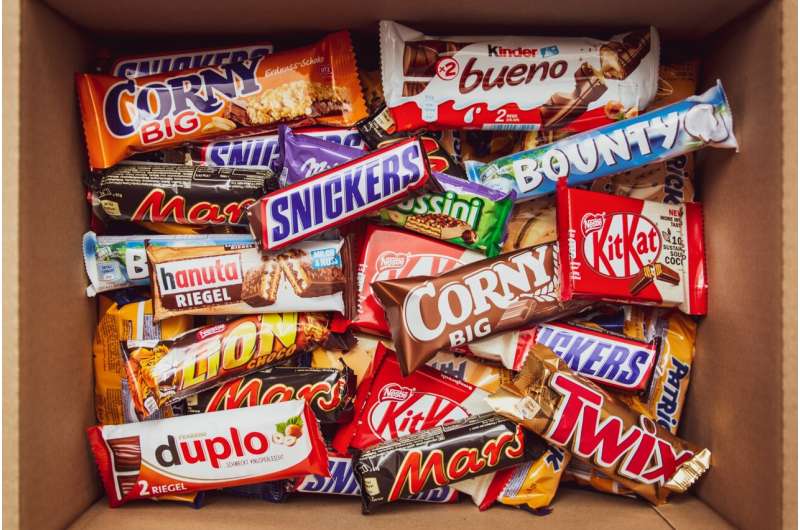Snacking impacted by smells and tastes

What we smell and taste can trigger substantial changes to food choices later in the day, a University of Otago study has found.
Scientists have always known sensory exposure can change people's food choices and behavior, but this is the first study to show these effects can last throughout the day.
Co-author Dr. Mei Peng, of the Department of Food Science, says the modern food environment is characterized by easy access to palatable food.
"This promotes overeating and can cause health issues. This research looks at how sensory exposure can potentially change eating behavior by suppressing or increasing appetite for certain foods," she says.
For the study, published in scientific journal Food Quality and Preference, researchers provided breakfast to 61 participants. Each was served either a plain portion of oats, or one with added vanilla aroma or non-caloric sweetness.
Participants then reported how full they felt after the oats and recorded what they ate for the rest of the day.
The researchers found post-meal satiety was similar across the different breakfasts. However, those who ate the sweetened breakfast ate significantly less sweet and more savory snacks throughout the day, compared to those who ate the plain oats.
Based on this, Dr. Peng believes dietary advice should consider the importance of sensory satisfaction in order to increase diet adherence.
"Sensory perception has a 'long-lasting' impact on eating, by directly influencing choices for subsequent meals. Our food choices for a meal can impact on variety seeking behavior, which is linked to increased likelihood of weight issues.
"While overall food consumption might be driven by one's metabolism and energy requirements, food choice is an important factor for a healthy lifestyle," she says.
She also believes the study findings could be pertinent to vapers.
"Vaping is now a common form of sensory exposure in people's daily lives. According to what we found, we would think vaping, which is typically associated with 'sweet' odors, can potentially increase appetite for savory foods in subsequent meals. We'd need to do further research to confirm this, though."
More information: Sashie Abeywickrema et al, Sensory specific satiety or appetite? Investigating effects of retronasally-introduced aroma and taste cues on subsequent real-life snack intake, Food Quality and Preference (2022). DOI: 10.1016/j.foodqual.2022.104612



















